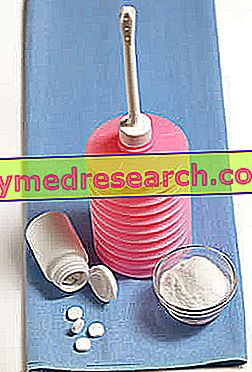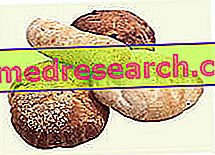Genital herpes is a contagious disease caused by a virus.
The herpes virus group is quite large; those that affect the genitals are called herpes simplex and differ in type 1 and type 2. Type 1 most often affects the mouth, eyes and nose, while type 2 affects the genital area.

Initially, an itchy, heat, swelling and superficial tension symptom arises. This sensation rapidly evolves into a tingling and burning sensation, announcing the local onset of small serous blisters. After being resorbed or broken, these lesions develop into superficial scabs that bleed easily.
What to do
Genital herpes infection is chronic and cannot be cured permanently.
Therefore, once infection has occurred, the treatment of acute patients plays an exclusively preventive role and largely implies the support of the immune system:
- Moderate periods of strong psychological stress (work, family, other commitments, etc.).
- Prevent the spread of other systemic or localized infections, for example: flu, candidiasis, bacterial proliferation, etc.
- Proper and balanced nutrition.
- Promote the specific intake of vitamins (vitamin C and vitamin D) and mineral salts (magnesium, iron, zinc and selenium) that support immunity.
- Promote the global intake of antioxidant molecules (in addition to the aforementioned vitamin C, also vitamin A, vitamin E, polyphenols, etc.). These elements hinder the formation of free radicals and improve the general oxidative condition.
- Increase the intake of essential omega 3 fatty acids (anti-inflammatory and antibody-stimulating function).
- Integrate nutrition with probiotic foods (they increase the intestinal bacterial flora, involved in the trophism of the immune system).
- Increase, if possible, the contribution of amino acid lysine (even if the reasons are not known).
- Engage in sports with reasonable frequency and intensity. At moderate levels, motor activity improves the body's defenses and efficiency.
- Take your medication only after consulting or prescription.
- Use intimate cleansers with a slightly acid pH and natural fabric underwear.
- When herpes overlaps with parallel infectious diseases, localized medical applications of acid solution (lactic acid) may help.
What NOT to do
Other behaviors are able to promote acute and should be avoided. Between these:
- Exceed with work, family and social commitments that are difficult to sustain. Although the challenging period seems limited, it may be enough to trigger the infection.
- Getting sick regularly, both at a general or systemic level (eg flu), and localized (bacterial, fungal infections, etc.).
- Neglecting the trophism of the immune system:
- Diet lacking in vitamins and minerals involved in the proper functioning of natural defenses (see previous paragraph).
- Antioxidant deficient diet.
- Diet that includes allergenic foods (in those predisposed, especially shellfish, dried fruit, egg protein, milk etc.) or responsible for food intolerance (eg gluten for celiac).
- Diet lacking prebiotics and probiotics.
- Take arginine-based food supplements; seems to favor acute.
- Follow sports protocols with excessive frequency, volume and intensity, without respecting recovery times and not listening to your body.
- Make use of drugs in an illogical manner (abuse), especially of antibiotics (which negatively affect the intestinal bacterial flora).
- Use underwear made with synthetic fabrics, irritating or containing annoying pigments; economic clothing of dubious origin (foreign) is particularly responsible for adverse reactions.
What to eat
Nutrition cannot cure herpes but affects the frequency and severity of relapses. It is advisable to encourage the consumption of some foods rather than others. In particular:
- For vitamin C or ascorbic acid: peppers, citrus fruits, parsley, kiwi, lettuce etc. They must all be fresh.
- For vitamin D: fish, fish oil and egg yolk.
- For zinc: liver, meat, milk and derivatives, some bivalve molluscs.
- For selenium: meat, peach products, egg yolk, milk and dairy products, fortified foods (potatoes, etc.).
- For magnesium: oilseeds, cocoa, bran, vegetables and fruits.
- For iron: especially meat, fishery products and egg yolk.
- For polyphenolic antioxidants: especially fresh fruits and vegetables, but also red wine, seeds, aromatic herbs, tea, roots, medicinal herbs etc.
- For lysine: meat, cheese, some fishery products and legumes (especially soy).
- For probiotics: all fermented foods such as yogurt, tofu, tempeh, buttermilk etc.
- For omega 3: blue fish, some oil seeds and related oils, algae.
What NOT to Eat
Improper eating habits such as:
- Monothematic diets.
- Vegan diet.
- Diet free of vegetables and vegetables.
- Diets based solely on:
- Cooked foods.
- Preserved foods.
- Arginine food supplements (which, as we have already said, have a negative effect).
Natural Cures and Remedies
There are products that "could" improve the trophism of the immune system or act positively on infection.
These include:
- Echinacea and other immunostimulating plants.
- Royal jelly
- Propolis (also for topical use).
Pharmacological care
In the fight against genital herpes, the drugs are not conclusive and do not constitute a remedy.
The molecules used in ointments and tablets have the purpose of: improving the symptoms, forcing the regression of viral proliferation and simplifying healing.
Some are:
- Zinc and / or cream heparin: decreases the duration and discomfort of the rash.
- Acyclovir (or similar): reduces the replicative capacity of viruses.
- Interferon: powerful antiviral action.
- Immunostimulants: especially natural or synthetic thymic hormones.
- Antihistamines: against itching.
Prevention
Prevention of genital herpes is of two types:
- Prevention against contagion: these are purely hygienic measures. Herpes simplex spreads very easily with sexual activity; less frequently if the disease is latent. The use of public toilets, swimming pools, towels and other people's linen are considered less significant risk factors but should not be overlooked.
- Prevention against acute, after infection: all the precautions mentioned in the previous paragraphs apply.
Medical treatments
There are no definitive treatments against herpes simplex.
Any therapy is exclusively palliative or intended to improve symptoms.
In addition to the prevention of infection, the prevention of manifestations and the possible use of drugs, there are no other known medical treatments against genital herpes.



